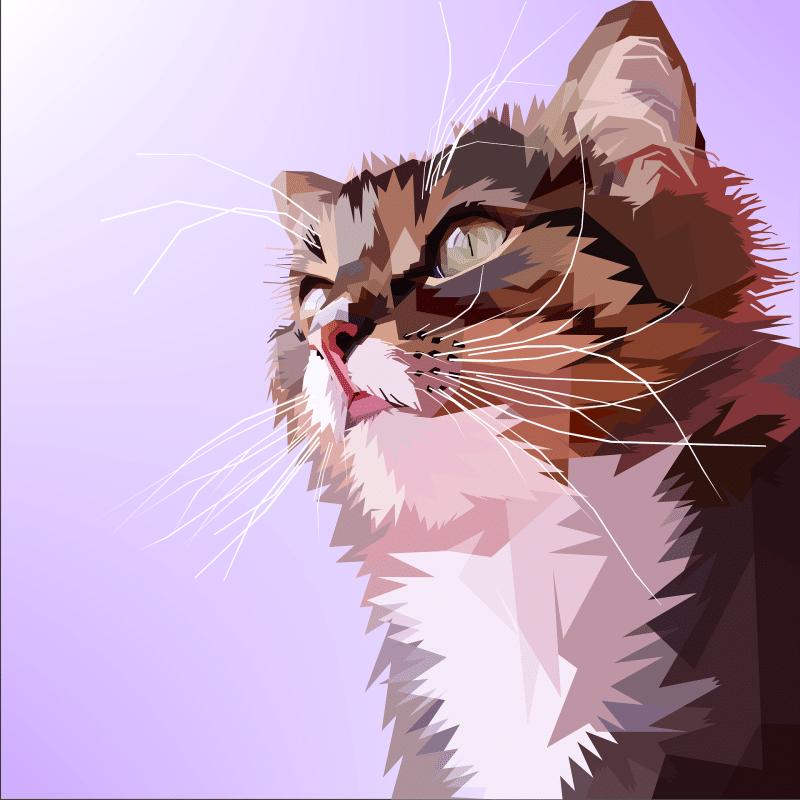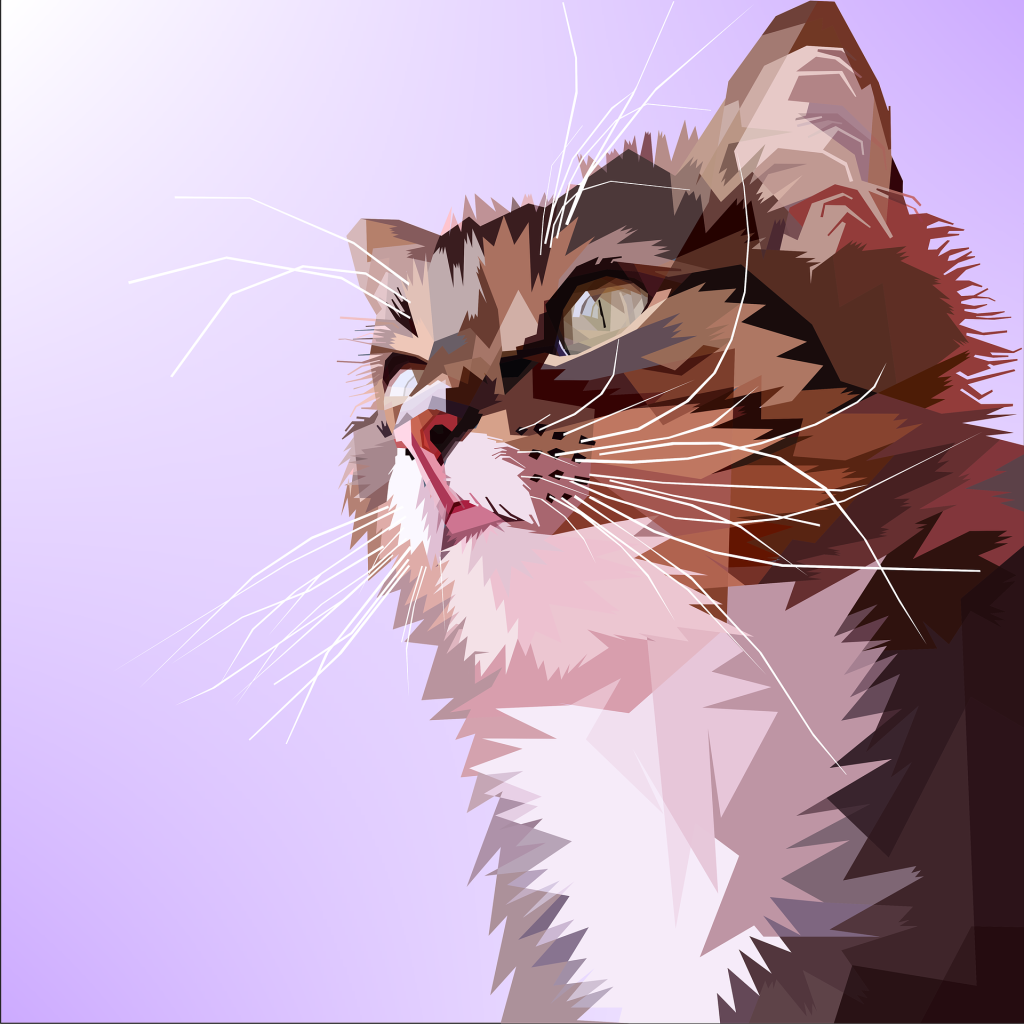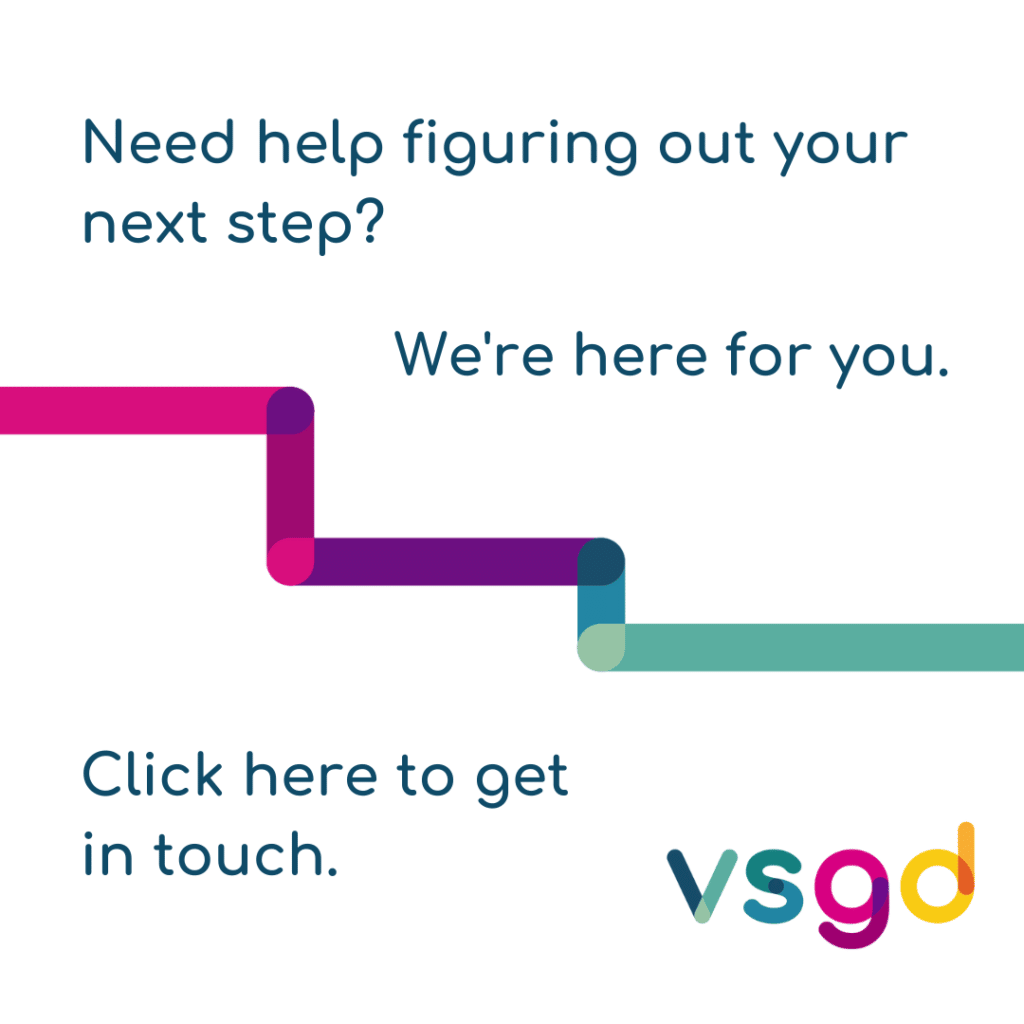
Category: Career Tips
-

Being you is exactly what vet med...
Continue ReadingRead Time/Watch Time
5 minutes
Who should read this?
veterinarians, vet nurses, vet techs, employers.
Author(s)
Melanie Barham
Region
Global content
Being you is exactly what vet med needs
Maybe you’ve thought, “being me, or showing up with all of my values and nuances is… impossible… not welcome…entitled…”
Maybe as an employer, you’ve thought,
“I don’t have time to even think about that. I’m running a business.” or…
“That doesn’t sound professional.”I hear you. I see all of those things. I’ve felt them too (and still do).
But please….
Stop working so hard. Stop trying to fit into a box that wasn’t made for you.
What is there room for when you DO show up as yourself and let your values shine through? Maybe you’ll connect with the right workplace, the right candidates, the right clients. Maybe you’ll inspire someone else.
Showing up true to you isn’t free of angst, or reflection, or care for how others receive you. It also doesn’t mean barreling in and hurting people with your opinions. But it is a place of opportunity.
Every day, people in our communities show who they really are. They’re professional, successful, un-entitled. Here’s a few from this week alone.
A workplace who joined our “Beyond Buzzwords” workshop this week showed their values of giving to the community by listing all the charitable events they support on their website with photos and a timeline; it’s one of their most commented on pages by clients, and one of the things their staff loves the most.
Our founder, Ebony Escalona, recently posted about the support from Lord Sandy Trees and the impact it had in getting VSGD started in the early days. Lord Tress was living his values of supporting the veterinary profession. Learn more about an amazing position available here working to advance vet med.Cherice Roth from our author’s panel coming up this week wrote a book entitled “What does a REAL doctor look like”? in one evening (yes really) so every kid could see someone like her as the definition of a doctor.
Brent Mayabb, Global Director at Royal Canin, posted about the work of the Banfield Foundation and a colleague we’ve featured before, Dr. Sara Ritzie.
How are you showing up? I’d love to know what you’re up to, or who’s inspired you. Hit reply and let me know.And if you’re less that brave today, join our communities to explore your potential together.
PS. I fully recognize the amount of privilege afforded to those of us who can show up without fear of physical harm. On behalf of those who cannot show up as fully themselves, please take the opportunity to keep pushing the boundary of being you to normalize what is acceptable for everyone.

Curious to know More?
Subscribe to our newsletter and never miss our free events, resources, and tips!
-

Waiting for change in vet med is...
Continue ReadingRead Time/Watch Time
5 minutes
Who should read this?
veterinarians, vet nurses, vet techs, employers.
Author(s)
Melanie Barham
Region
Global content
Waiting for vet med to change is like waiting for my horse to pay his own bills
Recently, I shared how I hate hearing talks bashing millennials. As tired as I am of bad mouthing “kids these days”, I’m more tired of waiting for change in our profession to happen spontaneously.
Burnout, mental health issues, overwork, debt, a veterinary shortage, economic challenges… we have a long list of presenting complaints that gets longer by the day.
Last week, I pondered our long list of problems as I got lots of emails from people responding to my thoughts on millennials. At the same time, I was frustrated beyond belief last week at a tough situation, and I wanted to go hide under my duvet. I realized (sigh), that no one was going to solve my problem for me, or swoop in and be the boss. Adulting sometimes really sucks right?
So, I let myself feel all the anger, frustration, and all the things.
Then I let a singular question come back to me: “I wonder if…” Applying this question is what I’ve seen change makers do as they conquered impossible problems.
Here’s what I’ll say about waiting for change: our profession, our workplaces, our career satisfaction… these things will only change if we (that’s me, you and every individual involved) make it happen. Change happens in many ways. It can happen through small actions, and through big groups and grand gestures. It can happen with a small group with little power, or with a large group with a lot of power, in institutions and in tiny, lesser known corners of our profession. It can happen when we demand change from leaders, and when we ask nicely.
But change never happens if we wait. It never happens if we ignore the nagging question, “I wonder what if…”, and definitely never if we listen to the voice that says, “People will think…”
Change ONLY happens if we act, if we try, and if we can start to see opportunity and imagine a path for those people too downtrodden to imagine it themselves.
There are about 50 or more models of how change actually happens, and frameworks of how to make change happen. Malcolm Gladwell (incidentally Canadian and from the town adjacent to mine) wrote about the idea of a Tipping Point. There’s a theory of the circle of influence, where we can each have impact even if we don’t have a leadership title.
The point I take from all of these change theories is that you never know where you are on the change model until the story is part of history.
Your small action, your small act of kindness or support or telling your story, or your small idea that you saw some success with… it could be part of a domino effect of influencing other change. It could actually be THE thing to tip the scales in a landslide of change. I have seen it play out so many times, and I’ve felt it.
The person who listened to my wild and crazy idea to write a blog about veterinary career paths, when I was so afraid it was a terrible idea that I couldn’t even talk about it and make eye contact, well, their kind encouragement fanned a spark that became a fire.
Here’s 4 change makers I LOVE to share the story of:
- The DVMoms group and including moms at conferences: moms in their audience complained at major conferences that there was no place to nurse, that they couldn’t pump, there was no childcare. With their lack of inclusive thought, conferences did not accommodate or welcome moms. This group of leaders said, “I wonder if…” and made their own conference that was AMAZING and also considered the needs of parents. Now, major conferences include these amenities as a given. These leaders asked nicely and didn’t get what they needed. So they made their own arena, and changed the game.
- Trillium Equine: Dr. Jenna Donaldson saw a need for equine vets to do less on call. She wondered, “What if we could…” and started Trillium Equine, and on-call only business. Going strong into 2023, she proved the model could work in Canada.
- Flexee: Dr. Silvia Janska saw how much flexible work was valued. Applying her scientific knowledge and methodology, she developed tools and data on how flexible work CAN work in the vet profession.
- Vital Animal owned by Dr. Lisa Coder: Lisa had a vision for how a clinic could work, how it could be a pillar of the community AND be inclusive. An opportunity presented itself, and within 30 days, she had a clinic and started a whole new era in her town.
There are SO many more outstanding people to share. These people are just like you and me. Just regular people who put on our pants one leg at a time. Your actions and ideas, and ability to see what MIGHT be possible will be the difference between whether our profession looks the same in 50 years or not. Let’s not wait for the big solution or the big leaders to solve it for us.
Let’s do this together, and explore the potential together.
“You can’t start a fire, you can’t start a fire without a spark” – Bruce Springsteen

Curious to know More?
Subscribe to our newsletter and never miss our free events, resources, and tips!
-

So you want to diversify?
Continue ReadingRead Time/Watch Time
10 mins
Who should read this?
Vets/VNs/Vet Techs
Author(s)
Ebony Escalona
So you want to diversify?
If you are thinking about diversifying but are not sure where to start, well, you wouldn’t be the first one to feel confused or overwhelmed.
We frequently get asked “how to diversify”, “where do you start?” and a few “I’m struggling to work this out – help!” type messages. It can be pretty daunting to think about how to work out what you want, and then, how to achieve it. So VSGD founder Ebony has compiled a list of practical steps to help you create a strategy for success.
1. First things first, you cannot just WANT to diversify.
Running away from something you do in practice or any other job for that matter will just stay with you in any new roles you find. We have to reframe the pain we are pushed from, into a pull that we are drawn to. Companies can tell a mile off if you are running from something, and they won’t want that in their team. What about their business excites you?
Reframe: “I don’t like the late finishes with no recognition at work” to: “I’m seeking a flexible working calendar with great team comms and a feedback network”
2. Identify what “themes” and “functions” you are drawn to
Theme is the sector or work or cause you are passionate about. So for me it would be career development or equine welfare.
Functions are the skills and competencies you want to flex in those themes you have identified. For me – hosting and mentoring.Watch this Themes and Functions Trailer with Nick Askew from Conservation Careers
So what are they for you?Is it welfare? The human-animal bond? Education? AND why are you specifically passionate or curious about it?
If you struggle to answer this then recount in your mind what are you doing when you have that state of flow or satisfaction or just a big fat smile? THAT is what you need to do more of. Really ask yourself when do I feel my best? Get a piece of paper out and write down everything that makes you feel good- veterinary and non-vet related.
3. What are your non-negotiables and values?
Non negotiables are the things that must be in place for you to be able to work at your best. Do you have to live in a certain location in the world? Do you need certain hours to fit around childcare? Would an inclusive workplace to neurodivergence help you to thrive?
And with that, really question what you value. What must you display in order to feel authentic and you? Not what you think you should value but the things that are YOUR internal compass. These are not choices but ways of being that need to be uncovered by each and every one of us.Try these exercises on for fit
Pick a peak moment in your life – perhaps a role or a specific time within a role where it felt great for you – write down the behaviours of yourself and others, the impact you might have been making and any other important observations of note.
You can take this one step further and plot your squiggly career – download our worksheet here
4. Explore
Once you’ve started with these first steps, you can start to explore the avenues of work that you might think will allow you to display the actions and pursue the passions you are interested in, rather than just moving around in the dark feeling your way for what might be the right door.
Tip – use our jobs platform to set alerts for certain type of roles and sectors and use LinkedIn – head to jobs and type in your ‘theme” AND ‘function”
E.g. Public health AND policy would give you these roles

5. Schedule time in your diary daily to do the above.
If you work full time, then maybe set aside 2 hours on a Sunday. This is dedicated time for you to:
a) Identify organisations that have similar values to you
b) Stalk people on Linkedin or use the search bar in VSGD
c) Make contact with them and ask them for a 10 min chat on phone to SPECIFICALLY ask them about their roles and the realistic nature of displaying the actions and passions you want to support
d) Ask your friends to put you in contact with people they might know in those organisations too. Our friend network is golden! You have thousands of people right here in VSGD across a number of communities
e) Sign up to the organisation’s career notifications! NETWORKING is key to gaining your next move. Take a read of our blog “build your well before you are thirsty” and have a listen to this short Harvard Business Review podcast6. Work on your CV and elevator pitch
You’ll need this to transfer the skills you have to the skills those organisations want. Watch back stop selling yourself short at VSGD live with VSGD’s Head of Coaching Adrian Nelson-Pratt, or why not check out our Career Accelerator course.
7. Get a coach
It will be the best investment you have ever made in yourself. I promise. This person will hold a mirror up to you and keep you accountable.
“Coaches are like personal trainers for the mind and will ask the questions you are needing answers for and support you to help you reach your goals in a quicker time than you may do own your own, particularly if spare time is the limiting factor!” Olly King, VSGDer.
Find out more about career coaching here.
8. Test the water
Volunteer or see practice with people whose roles you might like go and find out if it floats your boat. Look at their roles and teams- where are their problems or gaps? Can you help plug one or help work our solutions for them? Always have in your head- How can I help you? Keep this mantra with you everyday
9. Get comfortable with dead-ends, no and rejection
A no is just one closer to your yes! What is for you will not pass you. See the lesson- what can I do differently next time?
10. Support others
Help someone else every day in whatever role you are currently in. Supporting others raises our energy to support ourselves and can really highlight our strengths.
11. Get feedback.
Ask 10 people who you respect and like to email you with what they think are your top 3 strengths and 1 thing they think you could work on to be a more authentic and better you. Ask them to be honest. Take this feedback and use it to shape the way you tackle and find your next role.
Watch back VSGDer Julie Ross TED-style talk from VSGD LIVE– remember what is on the back of your shirt? What do you want people to say when you walk out of the room about you?
12. Remember career changes are marathons not sprints.
Pace yourself and make a plan based on the above. There will be dead ends and squiggles and every action you take will give you information and lessons about your way forward. The answers are in you, I promise. Tap into what feels good – when do you feel in flow, when do you feel drained? These are clues to the way you best work. Finding out what you don’t like is also just as valuable, and remember to enjoy the journey on the way. This is our one life, let’s remember to smell the roses on our veterinary passport meanders!
#VetPassport #VNPassport
13. Have fun! Be curious!
Remember how you were as a child- imaginative, playful, inquisitive, funny. Bring that into your quest. How privileged are we to be able to reinvent our careers. You might find that actually the grass is not greener and that tweaking where you are gives you the thumbs up feeling.
14. The energy you put out in the world directly reflects the energies you receive
Surround yourself with positive people. Remember there are radiators and drains in this world. You want to be a radiator and surround yourself with warmth too (they don’t just help with the season change).
Bonus point: Tell us what types of roles you would like to hear more of and VSGD will sort some more FB live Q and A interviews for you showcasing more #VetPassport #VNPassport
Curious to know More?
Subscribe to our newsletter and never miss our free events, resources, and tips!
-

How you tell your story matters
Continue ReadingRead Time/Watch Time
5 minutes
Who should read this?
Employers, job seekers, veterinarians, RVTs/RVNs, students.
Author(s)
Melanie barham
Region
Global content
How you Tell your story matters
I’ve had the pleasure all my career of being a chameleon and interloper. Not literally, but I seem to find places where I interlope between similar places and observe, and then fitting in and transplanting ideas from other places. On horse farms as a horse vet, I’d see different ways to manage equine athletes. In surveillance, I’d see the ways different experts supported the sector they worked in, be it beef, bees, poultry or others. Now at VSGD, I see workplaces and candidates who are all unique and doing incredible work. The interesting thing to me is that in each of these places where I’ve “interloped”, it’s hard for the individuals to see what’s special about the work they do and how they do it. When they come to talk about themselves, I often hear, “I think we’re doing what everyone is doing.” This could not be further from the truth.
There’s a name for that!
The phenomenon actually has a name: the False Consensus Effect. It’s a cognitive bias where we assume that because we think and behave a particular way, that most people also think and behave the same way. “I’m doing it and it seems normal, so everyone must be doing the same thing.” This is a big part of why it is so hard to create a unique job ad for a workplace, and why it is so hard to write a great resume/CV.
Workplaces can’t see the amazing things that are different from another because they live it every day. Candidates do the same thing, minimizing their accomplishments or not seeing that they might have a unique perspective to bring. This False Consensus Effect makes for a very bland job ad or cover letter if you’re a candidate. If you’ve ever read a job ad with something like, “We’re a 2 doctor practice with a great team”, or a resume/CV with something like, “Hard working veterinarian with high attention to detail” you know exactly what I mean.
Develop your story as an antidote to boring
So what’s the antidote to boring ads and writer’s block? Telling your story in a compelling way is critical. At VSGD, we focus on connection and storytelling because it works. Storytelling together with facts increases “memorability” and understanding by over 18%. Stories and examples work because they activate multiple learning systems in our brains. 40% of us learn visually (photos, diagrams). 40% of us learn best from auditory learning (videos, audio etc). The remaining 20% of us learn best kinaesthetically (doing, experiencing, feeling). Storytelling with photos and video invokes all the types of learning! (Smith, “Leader as Storyteller”)
Sounds good… How do I make that happen?
The answer lies in effective “history taking”. We all know we get more from clients when we ask open-ended questions. When we work with a workplace and ask them open-ended questions, then funneling in on specific examples, we get rich and endearing stories. We ask for clear examples, and we see the team engaging in such a special way. That’s part of the beauty of Interview the Boss, and how we help workplaces create better job ads. Our prep calls are usually 30 minutes or less and we get so much rich information I could write a novel about the workplace that would make for killer job ad content. We do the same thing with our Resume/CV review service. We’ve become effective “workplace clinicians,” able to get to the heart of the story within a short time. You can do this with your team too.
If you’d like to tell a better story, start by asking your staff questions about your workplace. Ask yourself and clients what they love about your company or organization. You’ll likely be surprised at what you find. Use those stories to build yours and provide specific examples.
If you’re a candidate, or student, I’d highly recommend our free Career Creator Workshop Series. Or why not download our CV Menu Builder.
Vets: Stay, Go, Diversify is at heart, a community built on storytelling. Need help telling yours? Get in touch!

Curious to know More?
Subscribe to our newsletter and never miss our free events, resources, and tips!
-

Fixed Term Contracts – Curating Your Career...
Continue ReadingRead Time/Watch Time
10 minutes
Who should read this?
veterinarians, vet nurses, vet techs
Author(s)
Lacey Pitcher
Region
Global content
Fixed Term Contracts - Curating Your Career Wardrobe
Last year, I realised I hated shopping and didn’t really know what I liked or what suited me; I sat cross-legged on the living room floor, pulled my laptop over and bit the bullet. I ordered one of those “personal shopper in a box” situations. You know the ones that go and put a nice little package together, curated for you with things that someone thinks you might like. I’m in my 30’s and quite frankly…. I’ve no idea what I like or what suits me. Occasionally I go rogue…. seek a dopamine hit and end up in hot pink dungarees. Sometimes I want comfy, snuggly and reliable jumpers. The favourite that I can pull on in the morning, nuzzle into, take a deep breath and start my day. Other times I want something a little more formal and structured.
On reflection, jobs can be like that too. When we contemplate shopping and searching the job market, we aren’t always sure what truly fits. Do we go for the reliable option we are used to or explore new options and styles? Sometimes, the item thrown into a box by chance that we would have overlooked actually becomes the item that makes us feel ten feet tall. Proud. Empowered. Strong.
What IF jobs could be like this? What IF we could shop, try on for size and then decide if we keep it?
Well, we can. Over the last year, as well as trading in my scrubs for formal shift dresses, I’ve been trying on a more formal role. One to explore and consider whether it goes back into the box, is exchanged or gets to hang in the wardrobe of my CV to keep.
Here are my 10 tips of a fixed-term contract: Try the things you may not have taken a chance on.
Taking a step outside your comfort zone may feel daunting, but what if there’s something on your ”to do” list that you’d love to try but don’t want to fully jump into? Fancy a leadership role but not wanting to fully commit right now? Try it on for size. See what you like… or don’t. What you’d ideally tweak. You may well be a natural leader and thrive in the position but like me, have previously seen leadership modelled in a way you didn’t like. Why not give it a go knowing that once your fixed term is complete, you could neatly pack it back into the box declaring it a style that didn’t suit and that’s ok?
- Explore new ensembles. Sometimes, the worry of “What if I don’t fit in?” can be a reason for people not to leave roles where they are unhappy or unfulfilled. Others are at the beginning of careers who don’t want to have multiple roles on their CV early on due to the perceived sense of judgement (we will cover this in a later blog – it’s not a thing anymore) A fixed-term contract gives the opportunity to try new things together, while having a clear end point. Try new skills together, new people, new environments. I had been really worried about working from home and losing the essence of teamwork in clinical practice. A fixed-term contract allowed me to try not only working from home but with new people outside the clinical setting. A setting I had known for the last ten years.
- Not everything in a capsule wardrobe works. Sometimes, not everything in the box or role works and that’s totally ok. There’s an end point. We aren’t going to love everything in every role at all times. It’s to be expected. So, try on the bits you like but give everything a good go. Sometimes, an element of a role will surprise you and you may just find yourself thriving in unexpected ways. Others there will be aspects that you told yourself you “should” work brilliantly and in reality, they don’t. Working from home for example looked like it would give me the autonomy to structure my days. In reality, the lack of structure took some getting used to and I had to learn to be disciplined. I hadn’t considered how challenging this would be.
- Size up or size down. Wanting to downsize or give something bigger a go? Unsure if it’s for you long term? A fixed-term allows an employer chance to fill short term gaps or trial new roles but it’s an excellent opportunity for candidates to size career options up with less risk, and making a big step feel smaller. When I initially applied for my recent role I perceived it to be far greater than me, prestigious even. Terrified and excited in equal measure with clear gaps in my skillset. I didn’t see myself as a candidate who identified with very formal roles. My “small town thinking” was not necessarily the voice the role required. I couldn’t have been more wrong. I’m glad I took the leap and I’m even more proud to have grown into a role I would have previously excluded myself from. To ask the metaphorical tailor for alterations or my peers if a style may work for me. Simply because I perceived it to be too big for me. I’d have counted myself out and missed an opportunity.
- Alterations are allowed. I AM vile in the mornings. I am not my best self, have far less patience and don’t bring my creativity in a way I am proud of. Pre-coffee and fresh, air the world feels a little beige at best. I know, for an employer, this isn’t the best version of myself to bring. If taking on a fixed-term, this is a great opportunity to get used to asking for adjustments. For me starting half an hour later makes the world of difference. If the fixed-term advert states a 9am start, you can still ask if there is flexibility. As with any role. I’d spent years working nights to mitigate my grinch-like mornings. Working a fixed-term allowed me to trial day shifts before fully committing. That said, 9am didn’t initially work for me to be showing up to meetings and so things were tweaked with me. In time, I adjusted with my workplace. We recalibrated together.
- Sometimes dopamine dressing is just the lift you need. We ALL have times where we need a pick me up. Is work feeling a bit like you’ve been on the tea cups at the fair a few too many times? Do you crave some excitement and exhilaration, just for a little while? Do it! Hunt out the dopamine and return to comfortable knowing that you appreciate your role. It’s ok to go on an adventure even if you don’t want to live there. A ball gown may make you feel flipping fabulous…..you don’t need to want to wear it every day. Some fixed-terms are as short as three months. Don the hot pink dungarees and dance around your kitchen cooking up the most phenomenal career pivot.
- Don’t add it to the floordrobe. Let’s not do this. Simply just no. If it doesn’t fit or suit you send it back. While a fixed-term contract has a clear end point, that doesn’t mean you can’t call it sooner if it isn’t working out. Send the outfit back and find a better fit. A role is only your role for as long as both parties want it.
- Comfort doesn’t always win, but sometimes it does. Let’s be honest, it really isn’t comfortable squeezing into jeans that are far too tight! There, I said it. I know I’m not the only one who has essentially done the macarena with a whole array of colourful words to attempt to fit into jeans I’ve outgrown. Simply to be “successful” to get into the jeans and spend the entire day uncomfortable. We outgrow roles. We kid ourselves that we should continue on, ignoring the discomfort. because we’ve invested a lot in the outfit. Throw the damn jeans away. Try something new on for size. In a fixed term role, you needn’t worry about how you’ll be perceived if you leave. Complete the contract and leave knowing what’s right for you.
- Some things are timeless (when you need to expend less brain power on work?) Nuzzled amongst your options, a simple, understated number. The “shift dress” of capsule wardrobe. Versatile. An option that works with family life, with enough wiggle room to be able to get out and about but enough structure to know what is expected day to day. One that conforms to expectation and gives you what you need. Nothing fancy. Just right. Some options really are timeless and they shouldn’t be shunned. Perhaps, after trying predictable on for size you grow to love it. No longer looking for quick fixes perhaps it’s time to settle comfortably in to timeless. A fixed-term contract may have a fixed end date initially but that doesn’t mean it can’t become the very staple you needed all along.
- It’s ok to return to old faithfuls. And then, having explored the options, what if we realise we really did love what we had all along? While twirling in a electric blue, fancy silk gown….what if the thrill of exciting doesn’t make us happy after all? Those gorgeous aspirational heels seen in glossy magazines are quite uncomfortable and sustainable only for short periods of time. What if the models seen on daytime TV actually longed for what you had/have? What if, after playing dress-up and exploring options you find yourself reaching for what you had all along? And so, with a smile and a deep breath, you pack away your selection box of garments and career options. Wrap them up and label them, “Not for me.” What if, after reflecting on everything you never truly wanted Avant Guard, Gaga’esque options and you long to reach for that perfect cashmere jumper. What if once you return to it, nuzzle in and smile to yourself knowing it’s exactly right for you? Just enough. Just the right amount of comfy and the ability to dress it up when needed. After a fixed-term contract sometimes we appreciate what was there all along. The option we potentially looked over and didn’t truly see for what it was. A true fit for us. You know, we actually find most people in group career coaching decide exactly this: what they have might need a new scarf or a freshen up, but it is exactly where they want to be.You know, we actually find most people in group career coaching decide exactly this: what they have might need a new scarf or a freshen up, but it is exactly where they want to be.
Have you tried a role on for size in a fixed term contract? What did you learn? Let us know at hello@vsgd.co If you’re inspired to look for a fixed term contract, create a profile with us today and get fabulous jobs coming to you.
Curious to know More?
Subscribe to our newsletter and never miss our free events, resources, and tips!
-

Build Your Well Before You are Thirsty...
Continue ReadingRead Time/Watch Time
10 minutes
Who should read this?
Veterinarians, Vet Nurses, Vet Techs, Employers.
Author(s)
Ebony Escalona
Region
Global content
Build your well before you are thirsty - making the most of your networks
We are repeatedly told the power of networking right? To some of us it comes naturally (lucky them) and to others, it can fill us with dread (we get it). The great thing is all of us can up our networking game in a way that doesn’t have to feel icky. And what if I were to tell you that both parties can walk away (or exit a zoom room) glad that they bumped into one another?
So, why do we care about networking? Well here are three reasons that massively resonate with me:
- People buy people not products or services
- To succeed in the world we have to be known by people
- Dig the well before you’re thirsty
Let’s just get super clear here, I am not saying that you need to be famous. Far from it but you will be massively helped by your network. LinkedIn research recently shared that 85% of jobs are obtained through networking! Too many of us rely on a reactive mindset when it comes to our career (myself included) and by nurturing a network NOW we can get rid of that just in time mindset!
Networking isn’t all about you though. If you take nothing else away from this article then think to yourself how you can be of service or value to others? At the end of the day, all humans crave connection and most of us find purpose in supporting others too.
There has never been a better time to reframe how we think about networking. Covid has ironically breathed fresh air into who and how we connect with one another. So, if networking is up there with top fears of public speaking, solo surgeries, insert your fear here! Then this article is for you.
What do you read?
#Opportunitiesarenowhere
Opportunities are nowhere?
Or something else?
Great networking is a strategy not to be taken for granted. Let’s supercharge your networking toolbox.
1. Who is already available to you?
Who do you know? If you are thinking no one then let’s take a mo to touch base with your world. Who do you know at your current work? Your friends and their friends? What about previous jobs and universities? Alumni networks are gold dust! What about your clients? The other departments in your organisation if you work in a larger entity? What about the online communities you are part of? Delegates that joined you at CE events? There were over 1000 at the Global Veterinary Careers Summit! Do you volunteer anywhere? I think now your circle of connections just got larger didn’t it.
2. Think about being a broker or bridge of connections
Here is an exercise for you to try. Grab a pen and paper (or a spreadsheet) and draw three columns.
Column one = people who have been influential in your career
Column two= who did I meet them through
Column three= who did I introduce to them
We can all be enablers and brokers and exert our influence. If we think about networking from this angle then it begins to change the notion of networking from what can I get to what can I give. That middle column is going to show you the bridges and brokers in your career- these are people worth reconnecting with. If you have lots of different people in this column or if column three is full of people then you are likely a bridge or broker already. So, a big thank you on behalf of all the career explorers you have helped.
3. Reengage with old connections without putting the pressure on
Here are some email/text templates you can personalise to get you started. How about sending them to three of your previous career brokers right now!
“Hey X, I hope you’re well. I would love an update on how Y was for you. Things here have been great since Z. No rush on replying as I know you are busy with Y and doing a great job for Z.”
Or you could also try
“Hey X hope you are well. As you are well connected in Y industry I wondered if you had a connection I could speak to to pick their brains on Z. No rush at all.”
4. Networking No-Nos
Here are some GREAT pieces of advice I wish I had channelled earlier in my career
Don’t hide behind email! Care re relying on one form of communication. We all have different preferences. You can build greater rapport by moving from email/LinkedIn/text to a call or zoom and also less room for misinterpretation of the words on the page!
Refrain from making the meeting request all about you! How can you make it a win-win conversation?
Sticking with people we know. We all need fresh perspectives – register for an online event outside your sector and connect with new people.
Not asking for action or confirming the next steps – keep momentum and manage the expectations so all parties can make an informed decision about whether they are in a position to help you right now.
Fearful of rejection – when people don’t reply straight away it doesn’t mean they are ignoring you. They may have forgotten or your note got lost in spam. Be pleasantly persistent.
5. Making the most of events
A compilation that can be used for in-person and online events. What else would you add to the mix?
A simple one that often gets ignored. Know why you are attending? What does success look like? By getting clarity here you can hone in on your networking requirements.
Check out who will be there, both speakers and exhibitors. Who would you like to connect with? Who interests you? Who can you help?
Connect with people before the event before the “noise” sets in and make sure to build in context that is significant to them when you reach out.
Add updates in your social media status that you are checking into an event. It is a great way for people to connect with you!
Use your consultation skills! Many people worry about what to say when you connect. If you are genuinely interested in someone else, the conversation will flow. Trust me! A networking mantra to remember: “Be interested over interesting!” Listen to what lights that person up. Arm yourself with some powerful questions.
Use poignant questions – what brings you here? What do you do for kicks? Listen to the backstory and use the three Ps of conversation to channel positive, personal and pride-evoking moments.
If you have met them before introduce yourself and remind them of your name and where you first met. Not everyone is good with names (my hands are up) and this breaks the ice.
Body language and lighting (for online events)! The secret ingredients to building rapport and trust. Open up, maintain eye contact, show active listening and as most of us are online make sure your camera is clean and focused on your face and torso to enable hand gestures to be captured. Check your lighting is on your face and that the background isn’t too busy!
Act like the host – If you see people are quiet or not involved in a conversation, reach out as you never know where that connection may lead.
Don’t plan too much. A lot of new connections can be made through serendipitous path crossings – from exhibitor halls to online community chats!
6. Work on a memorable intro
You will be asked to introduce yourself so get comfortable with showcasing yourself. Let’s make it memorable though. What anecdote, or part of your story can you bring to the fore? Practice saying it out loud and make sure it fits. Just like when you try on new clothes, these words need to make you feel comfortable, approachable and looking sharp!
Check out this super article How to introduce yourself so you’ll be unforgettable (in a good way) by TED ideas. I have been using a variation of this when I meet with people outside of the veterinary sector:
“I’m Ebony and I am on a quest to showcase the humans behind healthcare. Vets are my current muse (I also work as one). I love shining spotlights on people’s stories alongside science to support healthy careers for the ones that care. There are too many wounded healers who burn out before they have a chance to shine.”
7. Fanning the flames & prepping for leverage
Keep the momentum by messaging people you have appreciated connecting with within 48 hours of meeting.
“It was great to meet you! You now have me thinking about X. I hope Y goes well”
Think of creative ways to stay in touch. I can hear you saying that is all good and well but how?
If you have connected on social media you will have access to their birthday and personal news. Send them an email a day before their birthday and that will show how observant and caring you are.
Text them if you notice a big life event such as new job, marriage, promotion etc
Share events or articles that you think would interest them based on the conversations you have had. It will help to broaden their horizon too and I guarantee they will appreciate it. I certainly do!
Use voice notes – I often overthink what I am going to write so voice notes allow me to bring my authentic self to the fore and is super time efficient too.
Keep a Rolodex! Log your contacts – this is for you spreadsheet lovers! I am struggling to keep all my contacts in my head so this is a way to ensure I nurture and keep up to date with my network.
So, what should you record? Have a column for the name, where you met them, contact info, useful info from your conversations, significant events coming up for them such as presenting at a conference. You can then set reminders in your calendar to send them a good luck note.
All of these tips will help to foster responsibility, accountability, discipline, courage and humility. All great traits that your future employers, collaborators and partners will thank you for.
So, what do you read now? #Opportunitiesarenowhere
Opportunities are now here! Go get em tiger!
Curious to know More?
Subscribe to our newsletter and never miss our free events, resources, and tips!
-

Revelling in Spectacular Mediocrity
Continue ReadingRead Time/Watch Time
5 minutes
Who should read this?
students, veterinarians, vet nurses, vet techs, employers.
Author(s)
Melanie Barham
Region
Global content
Revelling in Spectacular mediocrity
I like being awesome at things. I choose things I’m awesome at to do frequently. I don’t enjoy being terrible at things; it’s uncomfortable and it sucks. And when I try new things, I’m NOT awesome at the new skill, and that makes me uncomfortable.
There I said it.
Any other perfectionists in the room? Maybe you’re the same?
My coach and I talked about this narrative, and how to combat it when we developed my learning plan. She recommended that I seek out situations where I’m uncomfortable as a matter of importance. Ugh! No!!
Like anyone else, I have to challenge myself to enter growth and change mode, where I won’t be the expert and I may not be good at navigating it. But the act of learning something new and sitting with the discomfort of not being the expert and risk of failure is what makes us good at doing more new things. It’s the same feeling right? Surviving and thriving in frequent low stakes new situations allows us to adapt to change more easily. We’re able to scaffold, or build upon the experience we had where we tried something new and nothing disastrous happened. We can actively build upon our experiences with more and more confidence in ourselves.
Essentially, “Ah right, I could handle discomfort of change and practicing a new skill, so in this similarly uncomfortable situation, I will draw upon the skills I learned to get through the other scenarios.”
Sounds amazing, but how do you do that? I’d like to suggest something I’ve been trialing out: taking time to revel and sit in spectacular mediocrity in a safe space.
I have a group of neighbours where we often meet up to be perfectly mediocre at things. We go for cross-country ski sessions that are slow. We make imperfect macrame. We make hilarious mugs. It’s fun, and I love spending time with them. Two weeks ago, we did a class on watercolour marker mandala. The lady who taught us is a high school teacher. She teaches at a school where students live in as they attend high school and recover from addictions. Her focus with us, like it must be with her students, was on playing with the colors. On finding cool combinations. And learning, exploring, and trying.
The mandalas were imperfect with flaws everywhere. Despite this, I felt energized and my work and resilience was high for the next week.
Upon reflection, any time I have taken time to be spectacularly mediocre (or very bad in some cases), I’ve built my resilience to be able to try bigger things, and felt SO much more ready and less stagnant and afraid. Believe me, I’ve been mediocre at many many things including ukulele, podcast editing, dog obedience (see community posts about bad dog), beekeeping, woodworking, skiing, snowboarding, and now watercolour markers.)
I’m going to continue to fulfill my prescription and try new skills simply so I can be mediocre at them and break down my aversion to it. It seems to be a pretty important prescription for my personal growth. Wanna join me?
What ways do you practice discomfort? What have recently learned and been “spectacularly mediocre” at?
If you are feeling challenged with the discomfort of taking the next step in your career, high five, you’ve joined the club. You may find support within our communities (free to join), or like I do, with a coach.
Happy exploring,
Melanie

Curious to know More?
Subscribe to our newsletter and never miss our free events, resources, and tips!
-

What to do if you DON’T land...
Continue ReadingRead Time/Watch Time
5 minutes
Who should read this?
Anyone who wasn’t selected for their dream job as a vet, vet nurse, vet tech, or student.
Author(s)
Melanie Barham
Region
Global content
Have you been through this? What advice would you have for others in this situation?
We’ve all been there; you apply for a job. You polish your resume and go through the interview, and maybe even start envisioning yourself in the role. And then you get the news that you didn’t get the job. Ouch.
First of all, let me say that everyone who is willing to admit it has been turned down for a job. Here’s some advice about what to do about it.
- Be gracious, even if you don’t feel like it. It never pays to be sour about a job you didn’t get. I generally suggest thanking the hiring committee or person for their time and consideration and wishing them the best. Even if you can’t muster any other goodwill.
- Take time to feel all the feelings and recoup. Rally your team of mentors and trusted people around you and be as angry, annoyed, sad as you like. It’s ok to feel these things. Professionally, you will likely not want to act on them at this phase, but all feelings are welcome in this stage. Talking this through with a coach can be really helpful also. Hyperlink: https://www.vsgd.cocareer-support/coaching/
- Objectively ask for feedback if you can. I’ve received some of the best feedback of my life from reaching out to the employer, someone on the hiring committee etc. after NOT getting a job. However, I will say that it is important to be sure you can listen humbly, and not get defensive or argumentative. Afterwards, it’s helpful to sit with the feedback, and decide which information you will take forward to modify your behaviour and which information you will leave behind. Not all advice is worth taking!
- Understand that sometimes it isn’t about you as a candidate, but the constraints and preferences of the employer. Sometimes you cannot change that.
- Make a plan to change things that need to be changed, and move on. It can be helpful to write it down as well.
- Know that it will feel a bit hard to put yourself out there again. If you feel a bit gun shy about applying to your next job, don’t worry. This is pretty normal. If your confidence has taken a beating, you might want to get your resume reviewed or do some interview prep with a professional, or lean on your support network.
Have you been through this? What advice would you have for others in this situation? If you want to speak to someone about interview prep, your resume/CV, or career coaching, please contact us!
Curious to know More?
Subscribe to our newsletter and never miss our free events, resources, and tips!
-

How to get into the right mindset...
Continue ReadingRead Time/Watch Time
5 minutes
Who should read this?
Anyone struggling to get their resume/CV updated, or applying for a job in the veterinary profession, students, veterinarians, vet techs, vet nurses.
Author(s)
Melanie Barham
Region
Global content
It is really helpful to have time set aside to revisit your resume/CV
Getting into the right mindset to tackle your resume/CV can be challenging. As a veterinary professional, it doesn’t matter if you’re a student, veterinarian, vet nurse/vet tech, or experienced executive, few people LOVE updating their resume/CV. Self-promotion isn’t something most people love to do. However, having a great resume is key to landing an amazing job. So how do we get into a better mood and mindset to tackle this odious task?
I’d suggest putting on some upbeat tunes and getting yourself some oxygen to the brain. Whatever your jam, get into a good mood to move forward. Exercising, or going on brisk walk by yourself can help to clear your head to sit down to work on representing yourself on a piece of paper. I’m not above talking to myself either; talking through some of my accomplishments is something I highly recommend in the car, or on a walk.
I also gather all my materials together, setting aside at least 1-2 hours to get this done. If you’re smart like some of my colleagues, you could consider creating a computer file, shoe box, file, or photo album of compliments, awards, nice emails etc that show all the times people have given you compliments. If you’re not that organized (like me of yesteryear), you’ll want to have a buddy who can jog your memory of the great things you’ve done. Call a supportive friend who can remind you of all the great things about yourself.
If you’ve got a specific job in mind, print the description or ad off, and underline some of the key words or skills they’re looking for. Draw a map or chart on paper or a spreadsheet of times you’ve shown these critical skills so you can specifically highlight them.
Tackling the job an hour at a time is often best. It is really helpful to have time set aside to revisit your resume/CV to ensure you have the wording just right. Sometimes enlisting a professional or friend as your proof-reader is helpful.
Above all, remember that while you’re meant to be honest and authentic, you really have to show that you can do the job. Don’t be ashamed or afraid to really let your strengths shine. If you don’t share them, no one will know they are there at the receiving end. Whatever you have to do to get in the type of mood where you feel like an absolute bada**, do it.
If you’d like help crafting your resume/CV, we can help. From students to executives, we’ve helped all stages successfully land positions in their dream jobs- clinical and non-clinical, in the veterinary field. Check out our services here. If you’re not sure what direction you’re headed, you may want to explore career coaching. Group coaching and individual coaching is available.
Curious to know More?
Subscribe to our newsletter and never miss our free events, resources, and tips!
-

Why You Need a Resume Even if...
Continue ReadingRead Time/Watch Time
5 minutes
Who should read this?
Anyone who has an out of date resume in the vet profession, vet techs/ vet nurses, veterinarians, students.
Author(s)
Melanie Barham
Region
Global content
Don’t let a resume be a barrier for you
When did you last update your resume or CV? Is it collecting dust bunnies in your desk drawer, or on your old computer from 3 years ago? If so, you’re not alone! Most people hate creating their resumes and view it as a tiresome tedious task that’s best put off until necessary. I’m here to challenge that belief today.
Here are the top reasons why people say they don’t need a resume/CV, and why you might want to change your mind:
I own my own business
So, if you’re a veterinary business owner, you might think you don’t need a resume at all. I mean, who are you applying to? But you’d be surprised at the number of times having a polished and updated resume can come in handy when applying for board positions, awards, or as a supporting document for bank loans etc. If you’re an entrepreneur, or someone looking for investors in your business, it can come in handy to offer to flip someone your amazing resume as a way to get to know someone quicker.
I mostly like my job
You might love your job, but sometimes amazing positions become available at the drop of a hat. Being prepared can allow you to take advantage of opportunities to progress in your career or take advantage of major pay increases without delay. You’d be surprised how many colleagues I’ve heard say, “Oh, I saw this amazing veterinary job on a Facebook group, but it was so much trouble to apply and update my resume.” Don’t let a resume be a barrier for you. Additionally, as a professional, you’ll want to continually add to your portfolio of experience, and applying to volunteer positions can be sped up with the addition of a resume. Finally, keeping your resume updated keeps track of your accomplishments for annual review time, making negotiation MUCH easier
I haven’t seen a job I like yet
Don’t let last minute resume panic seep in. When a job you love pops up, you want to be at the ready to apply early. Applicants who apply early have a much better chance of success! Having something prepared also likely means less errors. The more passes through a document, the less likely we are to make silly grammatical errors.
If you’d like help with preparing for a job application, check out our Resume/CV review services here. We have qualified veterinarians who are experts in crafting resumes that fit your needs, and all reviews include a LinkedIn audit and personal recommendations. Also check out our CV accelerator programme if self paced support is more your jam!
Curious to know More?
Subscribe to our newsletter and never miss our free events, resources, and tips!










